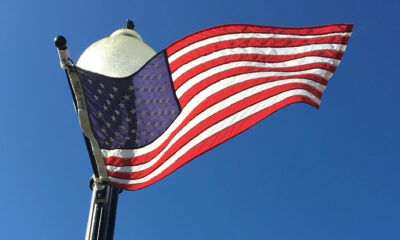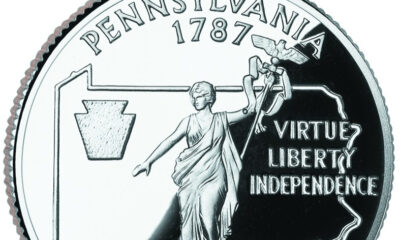Civilization
SCOTUS Is Last Bulwark Against Critical Legal Studies
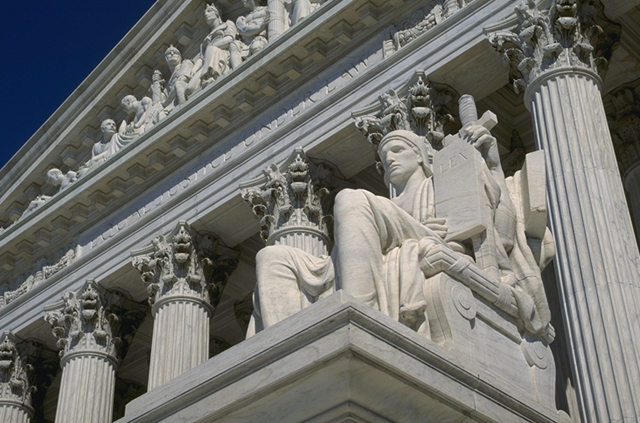
Prosecuting or judging to achieve a political goal can only lead to incoherence and increased cynicism about the law.
“Politics ain’t beanbag,” Finley Peter Dunne’s Mr. Dooley observed 130 years ago, and today’s U.S. political culture, replete with extreme passions, sometimes violent rhetoric, defamation, and dirty tricks, is probably as rough as it has ever been.
Dirty tricks are the order of the day
The “Russia collusion” hoax was the dirty trick of the century so far. Built around a fake dossier produced by an ex-spy, midwifed by the Clinton campaign and senior Obama administration officials, and hyped by Democrats in Congress and their friends in the media despite having reason to know it was false, this massive hoax succeeded in besmirching and distracting the new Trump administration.
Trump’s attorney general and U.S. attorney in Manhattan recused themselves in the hope of tamping down the hullabaloo, a special prosecutor was appointed, and activist junior prosecutors were unleashed to go after the new president and his associates, ultimately resulting in several pleas of, and convictions for, lying to the feds, among other crimes.
The criminal trial occurring now in New York around a business records felony arising from checks Mr. Trump issued from his personal bank account is the latest fruit of a poisonous tree.
It’s in this context that the U.S. Supreme Court held oral arguments last week to consider “whether and if so to what extent does a former President enjoy presidential immunity from criminal prosecution for conduct alleged to involve official acts during his tenure in office.”
Or, to put it more bluntly, is President Biden immune from prosecution by clever prosecutors appointed by President Trump next year after Trump wins his second term?
Sauce for the goose
It’s true that the Supreme Court hearing arises from one of the four criminal cases President Biden and two local Democrat prosecutors have brought against Mr. Trump after he announced that he was running for president, but several justices seemed fully cognizant that sauce for the goose will be sauce for the gander, too. (Note, however, that Mr. Trump has made clear that the only revenge he seeks is success for the American people, so of course, any suggestion that Biden might be prosecuted is a mere hypothetical.)
During oral arguments, Mr. Trump’s counsel conceded that he could be prosecuted for private acts, and the Biden administration’s counsel conceded that the president is immune from prosecution for certain official acts. This narrowed the scope of the disagreement and opened the door to overturning lower court holdings denying presidential immunity.
Discussing the structure of the Constitution, precedents, and policy considerations, a majority of the court appears likely to hold that Presidents enjoy immunity from criminal prosecution for official acts, and that this immunity extends past their term in office, but it is unclear whether the scope of immunity will be to the “outer perimeter of his official responsibility,” coextensive to the absolute presidential immunity from civil actions the Court delineated in Nixon v. Fitzgerald.
The Supremes understand the balance they must strike
Immunity lowers a president’s personal risk of being second-guessed and criminally harassed over his or her decisions, encouraging presidents to be bolder and less legalistic. But reducing a president’s personal risk from decision-making might increase the amount of presidential criminal activity, although there are political constraints and other structural penalties (such as impeachment) beyond the criminal law.
On the other hand, if presidents are prosecuted after leaving office, it green-lights the settling of scores and harassment by political rivals who succeed them. This increases the personal risk of decision-making, exacerbates existing political divisions, and further destabilizes our democracy.
This is legal reasoning seasoned by pragmatic analysis, attempting to maximize stability while minimizing criminality to serve the public interest and build support for the rule of law. And because no one is arguing that the Nixon v. Fitzgerald immunity from civil claims for official acts was a mistake or has had bad consequences, extending that ruling (or a variation on that ruling) to criminal claims just makes sense. So, it’s likely that the Court will ask the lower courts to analyze Trump’s indictment in light of his immunity for official acts before bringing him to trial.
Critical Legal Studies has poisoned the legal and judicial well
This is great judging; that it surprises some commentators, is bemoaned for possibly slowing the rush to judge Trump guilty, and was absent in the courts below says much about our current state of affairs. Too many reporters root instead of report, and too many in our legal system treat law as a ritual to announce a result instead of a restraint on power.
Most lawyers and judges in our legal system today attended law school during the academic ascendancy of the Critical Legal Studies movement, the thrust of which is that law is nothing more than politics. Whatever the academic value of deconstructing language in past opinions to diminish and demean reasoning from a Marxist perspective, prosecuting or judging to achieve a political goal can only lead to incoherence and increased cynicism about the law.
On the other hand, seeking to achieve the ideals of the Rule of Law – neutrality, equal treatment, and equal standing – and seasoning principled reasoning with pragmatic considerations to make the law work well for the people builds popular support for the Rule of Law. People have an inherent sense of fairness that’s informed by the belief we deserve to have the law apply to, and be applied against, us equally. Principled pragmatism just works better.
Portions of this article were previously published in The Telegraph.
This article was originally published by RealClearPolitics and made available via RealClearWire.
Richard Porter is the National Committeeman from Illinois on the Republican National Committee.
-
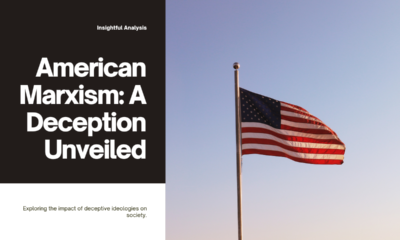
 Education2 days ago
Education2 days agoCHAPTER 18: American Marxism: The Biden Regime—Obama’s Third Term – Space Is No Longer the Final Frontier—Reality Is (forthcoming release June 2024)
-
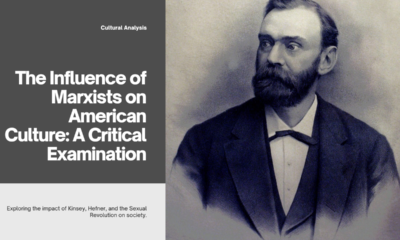
 Clergy3 days ago
Clergy3 days agoCHAPTER 17: Cultural Terrorism Comes to America – Space Is No Longer the Final Frontier—Reality Is (forthcoming release June 2024)
-
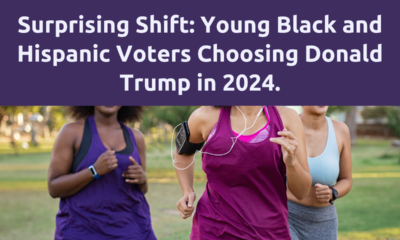
 Civilization4 days ago
Civilization4 days agoTrump changes demographic rules
-
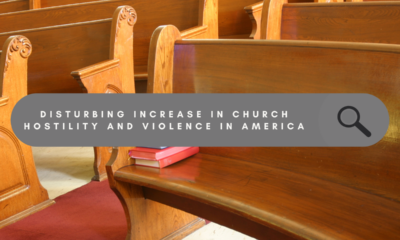
 Executive2 days ago
Executive2 days agoRecord High Of Hostility & Violence Against Churches In America: So Many Are Playing The Victims & Yet, They Are The Ones Doing The Attacking! Leaves The Church Defenseless
-

 Civilization5 days ago
Civilization5 days agoWho is Valentina Gomez?
-

 Civilization4 days ago
Civilization4 days agoWHO’s Odious Plans for Humanity
-
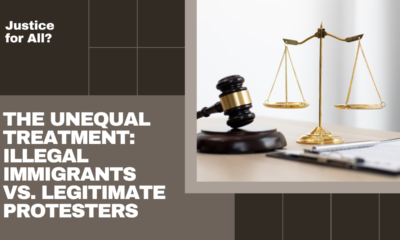
 Civilization3 days ago
Civilization3 days ago140 Illegal Immigrants Riot Charges Dismissed While 950 January 6ers Remain In Jail
-

 Executive4 days ago
Executive4 days agoInflation Isn’t a Bug in the System, It’s a Feature


